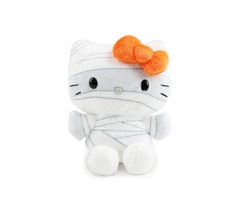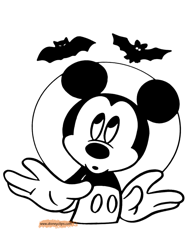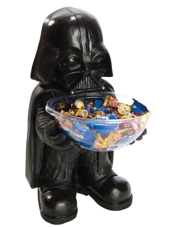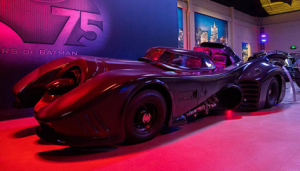
Photo Credit 1
It’s the spookiest time of the year! Halloween!!
So, in considering the correct way to format an interesting copyright list, nothing seemed to be more fitting than looking at some of the landmark cases and how the law applies to costumes in general. So, enjoy a trick or treat or ten below and hopefully learn at the same time!
- NOT ALL BANANAS ARE MADE EQUAL
In 2017, a costume maker named Rasta Imposta sued Kmart, alleging that Kmart’s banana costume was actually a knockoff of their own version. Intellectual property rights lawyers were hoping this case would help settle some longstanding issues on copyrights for costumes. Ultimately however, the two parties settled. So for now, it’s safe for folks to make and wear Banana costumes!
- A MASK THAT IS A MOLD OF AN ACTOR’S FACE WILL NOT MERIT MUCH PROTECTION
To be protected, a mask must be original. This was evidenced in Don Post Studios v. Cinema Secrets, where the makers of the Halloween movies were sued by the maker of the mask, worn by the fictional murderer Michael Myers, in the movie Halloween. The mask is simply a mold of actor William Shatner’s head, that was originally created as a Captain Kirk mask. Therefore, the court felt it was not sufficiently original to merit protection.
- THERE CAN BE SOME DEBATE OVER WHO REALLY CREATED A MONSTER
In another 2017 case, there was a dispute over who owned the rights to the original screenplay of Friday the 13th. Horror, Inc. claimed to be the exclusive owner of the rights to the screenplay against Victor Miller who was the original screenplay’s writer. The dispute arose because there is a special provision in copyright law allowing the original author of a work to reclaim his or her rights. Victor Miller has won summary judgment against Horror, Inc., which could well enable other screenwriters to gain back the right to their creations, but this case is still developing as there will likely be an appeal or subsequent settlement.
- DON’T MESS WITH HELLO KITTY, MICKEY MOUSE OR DARTH VADER
In 2012, Disney, Warner Brothers, and Sanrio, filed a lawsuit against a company called “Party Animals.” The company provided entertainment for parties using counterfeit costumes of the plaintiffs’ characters. The case was dismissed when the company agreed to end its infringing behavior and return the ill-gotten profits. Another similar suit arose in 2017, when Disney, Marvel, and Lucas films, filed a lawsuit against Characters for Hire, LLC. Again, a very similar party service business was using copyrighted characters without authorization. However, Disney was not granted the summary judgment in this case, due to lack of evidence. Therefore, the case is still pending.



Photo Credit 2 Photo Credit 3 Photo Credit 4
- ONE PERSON CANNOT OWN THE RIGHTS TO TEENS GETTING MURDERED IN THE WOODS
In 2015, a writer named Peter Gallagher sued the creator of the movie, The Cabin in the Woods, claiming that the movie infringed his novel The Little White Trip: A Night in the Pines. Gallagher asked for $10 million in damages and argued that the movie was virtually identical to his book. The judge was not persuaded because he said that just because the two share similar premises and locations, it would be impractical for one author or screenwriter to own these elements that are so common in horror films.
- WILL SMITH MAY HAVE PLAYED SUPERHEROES, BUT HE CAN’T BEST FREDDY
Actor Will Smith started his career out as a rapper. In 1988, a dispute arose when Will Smith and his buddy DJ Jazzy Jeff released a music video for their song, A Nightmare on My Street. The video prominently featured a villain named Freddy who has a burnt face, with a raspy, frightening voice, as well as gloved hands with sharp instruments protruding from the fingers. With the character similarity and “nightmare” in the title of the song, the similarities were a little too much. The parties ultimately settled out of court.
- THE POWER RANGERS ARE ALSO ADEPT AT FIGHTING COPYRIGHT AND TRADEMARK INFRINGEMENT
In 2011, SCG Power Rangers, LLC, who owns the Power Rangers franchise, sued Underdog Endeavors for selling knock off Power Rangers memorabilia on its website: mypartyshirt.com. The parties ultimately settled and the infringing party even agreed to return all the profits from the sale of the costumes to the company.
- IT’S CALLED FASHION KAREN, LOOK IT UP
In 2017, the Supreme Court ruled in the Star Athletica v. Varsity Brands case. While not a Halloween case directly, the result of this case affects all of copyright law, due to it being the first time the Supreme Court heard a case centering on apparel design. The ruling allows elements of garment design to be protectable. This particular case centered around chevron marks, stripes, and other patterns on cheerleading uniforms. The decision was of great significance, opening the door for designers to be able to argue their case in protecting certain elements of their designs. Many designers (including costume designers) will be likely to use this recent ruling to challenge knockoffs.
- COSPLAY: STILL A BIT OF A GRAY AREA
Simply making and wearing a costume is unlikely to infringe on any copyright, as it is protected as a reproduction for private purposes, under the Copyright Act. The real issue comes into play when costumes are used for profit, such as selling the costumes or charging for photographs of costumes, which can lead to legal troubles. In 2013, ThinkGeek began selling a licensed version of an iconic character’s hat from the show Firefly. Many fans who had been making and selling their own versions for years on websites like Etsy, Ebay, and CafePress, received cease and desist letters causing them to fear they would be sued. 20th Century Fox Television owns the intellectual property rights to Firefly and despite much mirth from the show’s fans, was legally allowed to enforce those rights. Nonetheless, these homemade hats remain for sale on many websites so the effectiveness of that crackdown remains to be seen.
- YOU CANNOT SELL YOUR OWN REPLICAS OF THE BATMOBILE
In 2015, the 9th Circuit Court of Appeals, ruled that selling replica Batmobiles was indeed a violation of Time Warner’s copyright. A man named Mark Towle of Gotham Garage, argued that cars were not covered under the Batman copyright. The judges were unimpressed by this argument. A unanimous three-judge panel ruled that the cars, which Towle was selling for approximately $90,000 a piece, were protected as Batman’s vehicle, because they have consistent character traits, leaving no dispute that DC created the character and car and owns its intellectual property rights.

Photo Credit 5
Article by: Lara Hall
1 GantDaily.com
2 sanrio.com
3 disneyclips.com
4 officialstarwarscostumes.com
5 wbstudiotour.com
